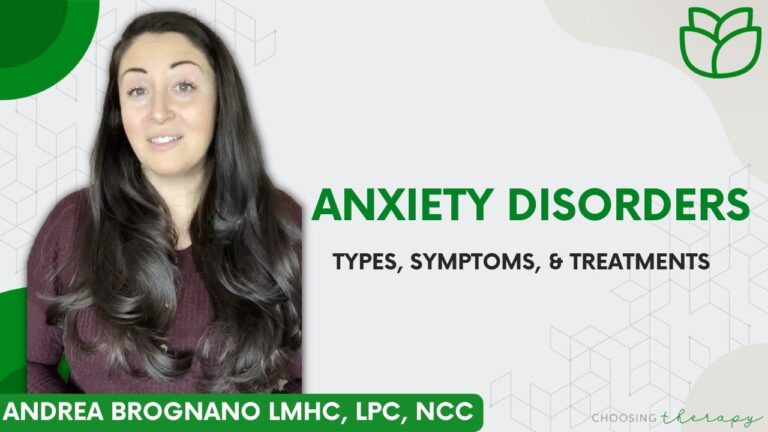The Benefits of Therapy for Mental Illness: How to Find the Right Therapist for You

Understanding the Role of Therapy in Mental Illness Treatment

Therapy plays a crucial role in the treatment of mental illnesses. It offers a safe and supportive environment for individuals to explore their thoughts, emotions, and behaviors with a trained professional. By working collaboratively with a therapist, individuals are able to gain insight into their struggles, develop coping skills, and make positive changes in their lives.
One of the key benefits of therapy is the opportunity for individuals to gain a deeper understanding of their mental health condition. Therapists can help individuals identify underlying factors that contribute to their symptoms, whether it be past traumas, negative thought patterns, or unhelpful behaviors. With this knowledge, individuals can work towards addressing these root causes and develop strategies to manage their symptoms more effectively.
Moreover, therapy provides individuals with a supportive and non-judgmental space to express their emotions and concerns. This can be particularly valuable for those who may not have a strong support system or who find it difficult to open up to others. A therapist can offer empathy, validation, and guidance, helping individuals feel heard and understood. Through this process, individuals can gain a sense of relief, develop healthy coping mechanisms, and build resilience in the face of their mental health challenges.
Recognizing the Importance of Seeking Professional Help

Seeking professional help is a crucial step towards managing and treating mental illness. Oftentimes, individuals may hesitate to reach out for assistance due to various reasons, such as fear, stigma, or a belief that they can handle their struggles alone. However, it is important to recognize that mental health professionals are equipped with the knowledge, skills, and tools to provide effective support and guidance.
One of the key reasons why seeking professional help is vital is because mental health professionals have the training and expertise to accurately diagnose and assess mental health conditions. Misdiagnosis or incorrect treatment can have serious consequences and hinder progress. By consulting with a professional, individuals can ensure that they receive a proper evaluation, leading to a more accurate diagnosis and the development of a personalized treatment plan.
In addition, mental health professionals offer a safe and nonjudgmental space for individuals to openly discuss their thoughts, feelings, and experiences. This therapeutic environment fosters trust and allows individuals to explore their emotions and challenges without fear of being misunderstood or dismissed. Through therapy sessions, individuals can gain a deeper understanding of themselves, develop coping mechanisms, and work towards achieving their mental health goals. Seeking professional help can be the first step towards a healthier and more fulfilling life.
Exploring the Different Types of Therapy Available

Therapy is a crucial component in the treatment of mental illness, as it offers a safe space for individuals to address and work through their challenges. There are various types of therapy available, each with its own unique approaches and techniques. One common form of therapy is cognitive-behavioral therapy (CBT), which aims to identify and change negative thought patterns and behaviors that contribute to mental health issues. Through CBT, individuals learn new coping strategies and develop healthier ways of thinking and behaving.
Another type of therapy is psychodynamic therapy, which focuses on exploring unconscious patterns and unresolved conflicts that may be contributing to mental health symptoms. By gaining insight into these underlying issues, individuals can gain a better understanding of themselves and their experiences, leading to improved emotional well-being. Additionally, dialectical behavior therapy (DBT) is often used to help individuals manage intense emotions and develop skills for effective communication and coping with distress. This type of therapy is particularly beneficial for individuals with borderline personality disorder or those who struggle with self-destructive behaviors.
Identifying the Specific Benefits of Therapy for Mental Illness
Therapy plays a crucial role in the treatment of mental illness by offering specific benefits that can significantly improve a person’s well-being. One of the primary advantages of therapy is its ability to provide individuals with a safe and nonjudgmental space for them to express their thoughts, emotions, and concerns. This can be particularly helpful for those with mental illness, as it allows them to explore and process their experiences in a supportive environment.
Furthermore, therapy helps individuals develop effective coping mechanisms and strategies to manage their symptoms and challenges associated with mental illness. It equips them with the necessary tools and skills to navigate the difficulties they may encounter on a daily basis. Through therapy, individuals can gain a better understanding of their condition, develop insight into their thoughts and behaviors, and learn healthier ways to cope with stressors. As a result, therapy can ultimately lead to improved overall mental health and a better quality of life.
Overall, therapy offers a range of specific benefits for individuals struggling with mental illness. From providing a safe space for expression to equipping individuals with coping strategies, therapy can be instrumental in helping individuals manage their condition and achieve overall wellness.
Therapy, also known as psychotherapy or counseling, can offer a range of specific benefits for individuals experiencing mental illness. Here’s a table summarizing some of these benefits:
| Specific Benefits of Therapy for Mental Illness | Description | Source of Information |
|---|---|---|
| Symptom Reduction | Therapy can help alleviate the symptoms of mental illnesses, such as depression, anxiety, or PTSD, leading to an improvement in overall well-being. | Psychological Bulletin. 2013 Mar;139(2):216-69 |
| Improved Coping Skills | Individuals can learn healthier coping mechanisms and strategies to manage stress, challenges, and negative emotions effectively. | Clinical Psychology Review. 2009 Mar;29(2):163-78 |
| Increased Self-Awareness | Therapy provides a safe space for self-reflection, allowing individuals to gain a deeper understanding of their thoughts, feelings, and behaviors. | Psychotherapy Research. 2013 Nov;23(6):680-93 |
| Enhanced Problem-Solving Abilities | Therapists can assist individuals in developing better problem-solving skills, contributing to improved decision-making and life satisfaction. | Behaviour Research and Therapy. 2006 Aug;44(8):1111-27 |
| Improved Interpersonal Relationships | Therapy helps individuals develop and maintain healthier relationships by addressing communication patterns, boundaries, and relational dynamics. | Journal of Consulting and Clinical Psychology. 2006 Aug;74(4):658-70 |
| Emotional Regulation | Learning emotional regulation skills can help individuals manage intense emotions and reduce impulsive or destructive behaviors. | Psychological Science in the Public Interest. 2017 May;18(1):1-44 |
| Goal Setting and Achievement | Therapists can assist individuals in setting realistic goals, working towards them, and celebrating achievements, fostering a sense of accomplishment. | Journal of Consulting and Clinical Psychology. 2002 Apr;70(2):275-87 |
| Enhanced Quality of Life | As symptoms decrease and coping skills improve, therapy contributes to an overall improvement in the individual’s quality of life and daily functioning. | World Psychiatry. 2018 Jun;17(2):210-219 |
| Prevention of Relapse | Therapy can provide ongoing support and tools to help prevent the recurrence or worsening of symptoms, reducing the risk of relapse. | Archives of General Psychiatry. 1998 Oct;55(10):877-85 |
| Personal Empowerment and Empathy for Self | Therapy fosters a sense of personal empowerment, self-compassion, and self-acceptance, promoting a positive self-image and resilience. | Journal of Psychiatric Practice. 2013 Nov;19(6):454-63 |
Examining the Positive Effects of Therapy on Emotional Well-being
Therapy has been shown to have numerous positive effects on emotional well-being. One of the primary benefits is the opportunity for individuals to express their thoughts, feelings, and concerns in a safe and non-judgmental environment. This can provide a sense of relief and validation, as they are able to openly discuss their emotions without the fear of being criticized or misunderstood.
Moreover, therapy can help individuals gain a deeper understanding of their emotions and the underlying causes of their distress. Through various therapeutic techniques, individuals can explore and process their past experiences, identify unhealthy patterns of thinking and behavior, and develop healthier coping strategies. This self-exploration and introspection can lead to increased self-awareness and a greater sense of control over one’s emotions.
Additionally, therapy provides individuals with the tools and skills to effectively manage their emotions and improve their overall emotional well-being. Therapists often teach techniques such as mindfulness, relaxation exercises, and cognitive restructuring to help individuals better regulate their emotions and respond to stressful situations in a more adaptive manner.
Overall, therapy plays a crucial role in promoting emotional well-being by providing a supportive space for individuals to explore their emotions, gain insight into their experiences, and develop strategies to effectively manage and regulate their emotions. By addressing the emotional aspects of mental illness, therapy can greatly enhance an individual’s overall quality of life and well-being.
Understanding How Therapy Can Improve Cognitive Functioning
Therapy has long been recognized as a valuable tool in treating mental illness, but its benefits extend beyond emotional well-being. Cognitive functioning, which includes processes like thinking, memory, and problem-solving, can also be improved through therapy. By working with a therapist, individuals can develop new strategies and skills to enhance their cognitive abilities.
One way therapy can improve cognitive functioning is by addressing negative thinking patterns. Many mental illnesses, such as depression and anxiety, are associated with distorted or negative thoughts. Cognitive behavioral therapy (CBT), for example, helps individuals recognize and challenge these unhelpful thoughts, replacing them with more positive and realistic ones. Studies have shown that CBT not only reduces symptoms of mental illness but also leads to improvements in cognitive functioning, such as memory and attention.
Additionally, therapy can help individuals develop effective coping mechanisms for stress and emotional difficulties, which can in turn aid cognitive functioning. Chronic stress has been found to have detrimental effects on the brain and can impair cognitive processes. Through techniques like relaxation exercises, problem-solving strategies, and stress management techniques, therapy can help individuals better manage stress, protect their cognitive abilities, and improve overall cognitive functioning.
In conclusion, therapy plays a crucial role in improving cognitive functioning for individuals with mental illness. By targeting negative thinking patterns and equipping individuals with stress management and coping skills, therapy can enhance cognitive abilities and contribute to overall well-being.
Exploring the Social Benefits of Therapy for Mental Illness
Therapy for mental illness not only provides individuals with the tools they need to manage their symptoms and improve their overall well-being, but it also offers a range of social benefits. One of the primary social benefits of therapy is the opportunity for individuals to develop and enhance their interpersonal skills. Through therapy, individuals can learn effective communication strategies, conflict resolution techniques, and healthy boundaries, which can greatly improve their relationships with others.
Additionally, therapy provides a safe and judgment-free space for individuals to express and explore their thoughts, emotions, and experiences. This can be particularly beneficial for individuals who may feel isolated or misunderstood due to their mental illness. Through therapy, individuals can connect with a supportive and empathetic professional who can validate their experiences and provide guidance on how to navigate and cope with social challenges. These therapeutic relationships can help individuals build confidence, resiliency, and a sense of belonging, ultimately leading to improved social functioning and a greater sense of community.
Recognizing the Impact of Therapy on Physical Health
Therapy is often associated with improving mental health, but its impact extends beyond the mind to benefit physical well-being as well. Research has shown that engaging in therapy can have significant effects on various aspects of physical health. For instance, individuals who undergo therapy for mental illness are more likely to adhere to medical treatments for physical ailments, leading to better overall health outcomes.
Furthermore, therapy has proven to be effective in reducing symptoms of certain physical conditions that are linked to mental health. Chronic pain, for example, is often intertwined with psychological distress. By addressing the underlying emotional causes of pain through therapy, individuals can experience a reduction in their discomfort levels and an improvement in their quality of life.
Additionally, therapy can play a critical role in managing stress, which is known to have detrimental effects on physical health. Chronic stress can contribute to the development of various health issues, including cardiovascular disease, high blood pressure, and weakened immune function. Through therapy, individuals can learn coping mechanisms, stress management techniques, and relaxation exercises that can help mitigate the impact of stress on their bodies.
In conclusion, therapy not only promotes mental well-being but also has a profound impact on physical health. By effectively addressing mental health concerns, individuals can experience improvements in various aspects of their physical well-being, from medication adherence to pain management and stress reduction. The integration of therapy into comprehensive healthcare approaches is essential in fostering holistic healing and promoting overall wellness.
Addressing Stigma Associated with Mental Health Treatment
Stigma surrounding mental health treatment continues to be a significant barrier for individuals seeking help. The negative stereotypes and discrimination associated with mental illness can prevent people from seeking the treatment they need, leading to the exacerbation of symptoms and a decline in overall well-being. This stigma is often fueled by misconceptions and a lack of understanding about mental health conditions.
It is crucial to address this stigma and educate the public about the importance of seeking mental health treatment. By providing accurate information and debunking myths surrounding mental illness, we can help reduce the fear and judgment that often accompanies these conditions. It is important to emphasize that mental illness is not a personal weakness or a character flaw, but rather a medical condition that can be effectively treated with professional help. When we promote an environment of acceptance and support, individuals are more likely to seek treatment and embark on their journey toward recovery.
Understanding the Factors to Consider When Choosing a Therapist
Choosing a therapist is a crucial decision when seeking mental health treatment. There are several factors to consider to ensure you find the right therapist for your needs. First and foremost, it is important to determine their qualifications and credentials. Confirm that the therapist is licensed and has the appropriate education and training in the specific area of expertise you require assistance with.
Another factor to consider is the therapy approach or technique used by the therapist. There are various therapeutic approaches, such as cognitive-behavioral therapy, psychodynamic therapy, and mindfulness-based therapy, among others. Research different approaches and determine which one aligns with your goals and preferences. Additionally, consider the therapist’s experience in treating your specific mental health condition. Some therapists specialize in certain areas, such as anxiety disorders, depression, trauma, or addiction. It can be beneficial to work with a therapist who has experience in addressing the specific challenges you are facing.
Exploring Different Therapeutic Approaches and Techniques
Therapy is a valuable tool in the treatment of mental illness, and there are a variety of different therapeutic approaches and techniques that can be utilized. One commonly used approach is Cognitive Behavioral Therapy (CBT), which focuses on identifying and changing negative thought patterns and behaviors that contribute to mental health issues. CBT has been found to be effective in treating a range of conditions, including depression, anxiety disorders, and eating disorders.
Another approach is Dialectical Behavior Therapy (DBT), which combines elements of CBT with mindfulness techniques and a focus on building interpersonal skills. DBT is often used to treat borderline personality disorder and has shown promising results in reducing self-harm behaviors and improving emotional regulation. Additionally, Eye Movement Desensitization and Reprocessing (EMDR) is a technique commonly used to treat post-traumatic stress disorder (PTSD) and works by facilitating the reprocessing of traumatic memories through specific eye movements. EMDR has been shown to be effective in reducing symptoms of PTSD and improving overall well-being.
It is important to note that different therapeutic approaches may be more effective for certain individuals or specific mental health conditions. It is recommended to work closely with a healthcare professional to determine the most suitable approach for individual needs. By exploring the variety of therapeutic approaches and techniques available, individuals can find the right fit that will provide them with the support and strategies necessary to improve their mental well-being.
Identifying the Qualities to Look for in a Therapist
When seeking therapy for mental illness, it is crucial to find a therapist who possesses certain qualities that can enhance the therapeutic process. One important quality to look for in a therapist is empathy. A therapist who is able to understand and share the feelings of their clients can create a safe and supportive environment, allowing clients to feel heard and validated. Empathy helps foster a strong therapeutic relationship and can greatly contribute to the effectiveness of therapy.
Another important quality to consider when choosing a therapist is their level of experience and expertise. Mental health professionals with years of experience and specialized knowledge in treating specific mental illnesses can offer valuable insights and interventions. They have likely encountered a wide range of cases and can draw upon their expertise to tailor treatment plans specifically to the needs of their clients. This level of competence provides clients with a sense of assurance and can instill confidence in the therapeutic process. By prioritizing empathy and expertise, individuals can maximize the potential benefits of therapy and enhance their overall well-being.
Understanding the Importance of a Therapist-Patient Connection
A strong therapist-patient connection is vital in mental health treatment. This connection forms the foundation for effective therapy and can significantly impact the outcomes of the treatment. When a patient feels heard, understood, and supported by their therapist, they are more likely to open up, trust the process, and actively engage in their own healing.
The therapist-patient connection creates a safe and non-judgmental space where patients can freely express their thoughts, feelings, and experiences. This trust and rapport allow the therapist to gain a deeper understanding of the patient’s struggles, enabling them to tailor treatment approaches that best meet their needs. Additionally, studies have shown that a positive therapeutic alliance, characterized by empathy and collaboration, is associated with better treatment outcomes, including reduced symptoms, improved overall well-being, and increased satisfaction with therapy.
In conclusion, the importance of a strong therapist-patient connection cannot be overstated. It not only fosters trust and open communication but also sets the stage for meaningful progress in therapy. When patients feel genuinely supported and understood by their therapist, they are more likely to actively participate in their own healing journey, leading to more positive treatment outcomes.
Exploring Different Methods to Find the Right Therapist for You
Finding the right therapist is a crucial step in your mental health journey. With so many options available, it can feel overwhelming to navigate through the various methods of finding a therapist that suits your needs. However, there are several effective strategies that can help simplify this process and increase your chances of finding the right therapist for you.
One method is to start by gathering recommendations from trusted sources. Reach out to friends, family, or colleagues who have had positive experiences with therapy and ask for their recommendations. These personal referrals can provide valuable insights and help you narrow down your search. Additionally, consider seeking recommendations from other healthcare professionals, such as your primary care physician or psychiatrist, as they may have a network of therapists who specialize in your specific needs.
Recognizing the Role of Support Systems in the Therapy Process
Support systems play a crucial role in the therapy process for individuals with mental illness. These systems can consist of family members, friends, or even support groups specifically designed for people facing similar challenges. The support provided by these systems is invaluable as it offers a source of encouragement, understanding, and empathy during what can often be a difficult and trying time.
Having a strong support system can help individuals feel less alone in their struggles and can provide them with a sense of belonging. It can also create a safe space for individuals to discuss their experiences, emotions, and concerns without the fear of judgment. This can be immensely beneficial in therapy, as it allows individuals to explore their thoughts and feelings openly, leading to a deeper understanding of their mental health and facilitating their progress towards healing and recovery. Additionally, support systems can offer practical assistance, such as accompanying individuals to therapy sessions or helping them navigate the complexities of mental health treatment. This added support can alleviate some of the stress and burden associated with seeking professional help and increase the chances of successful outcomes in therapy.\n
What is the role of support systems in the therapy process?
Support systems play a crucial role in the therapy process by providing emotional support, encouragement, and understanding to individuals seeking therapy. They can help create a safe and supportive environment for therapy sessions and offer ongoing support outside of therapy sessions.
How can support systems contribute to improving mental illness treatment?
Support systems can contribute to improving mental illness treatment by offering a network of people who can provide additional perspectives, insights, and encouragement. They can help individuals adhere to treatment plans, provide motivation during challenging times, and assist in managing symptoms.
Can support systems help in reducing the stigma associated with mental health treatment?
Yes, support systems can help in reducing the stigma associated with mental health treatment. By openly discussing their experiences with therapy and mental health, support system members can help normalize seeking professional help and educate others about the benefits of therapy.
Are there any specific qualities or characteristics to look for in a supportive individual?
When choosing a supportive individual, it is important to look for qualities such as empathy, non-judgmental attitude, good listening skills, and reliability. Supportive individuals should be willing to offer their time and understanding without imposing their own beliefs or advice.
How can someone find the right support system for their therapy process?
Finding the right support system for therapy can involve reaching out to friends, family, or joining support groups specific to the individual’s mental health condition. Online communities, therapy forums, and social media platforms can also provide avenues for connecting with others who can offer support and understanding.
Can support systems have a positive impact on physical health during therapy?
Yes, support systems can have a positive impact on physical health during therapy. They can provide encouragement and motivation to engage in self-care activities, promote healthy habits, and help individuals manage stress, which in turn can have a positive effect on physical well-being.
How can support systems enhance the therapy process for individuals?
Support systems can enhance the therapy process for individuals by providing a network of individuals who can offer emotional support, practical guidance, and help reinforce the lessons and skills learned in therapy. They can act as a sounding board, offer reassurance, and help individuals stay committed to their therapy goals.






